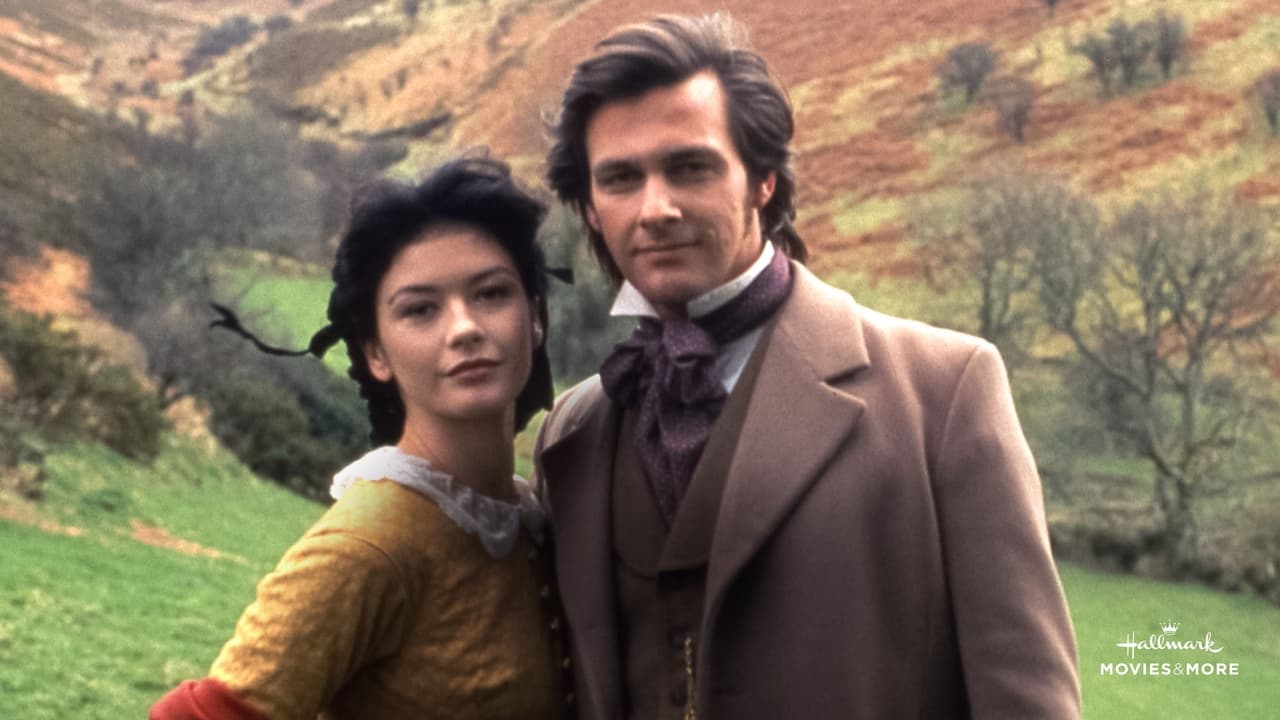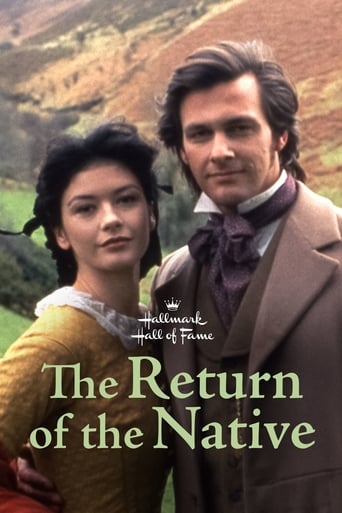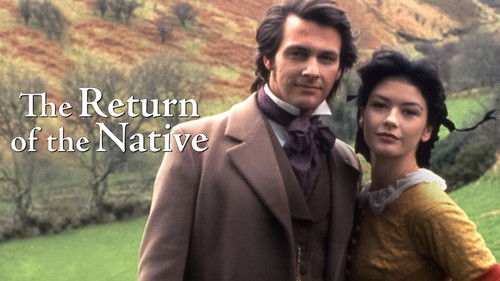KnotMissPriceless
Why so much hype?
Lucybespro
It is a performances centric movie
Majorthebys
Charming and brutal
Joanna Mccarty
Amazing worth wacthing. So good. Biased but well made with many good points.
James Hitchcock
To celebrate my 1,300th review for IMDb, I turn to a film based on the work of my favourite author. Despite his prominent position in the canon of English literature, Thomas Hardy has never really been a mainstay of the cinema in the way that, say Dickens or (in recent years) Jane Austen have been. Although there have been occasional excellent Hardy adaptations, such as Schlesinger's "Far from the Madding Crowd" or Polanski's "Tess", a number of his novels have never been the subject of a feature film. I am not just talking about his more obscure works such as "Desperate Remedies" or "The Hand of Ethelberta"; there has never been a film based upon a novel as great as "The Mayor of Casterbridge", unless one counts Michael Winterbottom's eccentric "The Claim", which alters the plot considerably and transfers it to the American West. "The Return of the Native" is another great Hardy novel which has never been filmed for the cinema; this TV movie from 1994 is the only film version. The plot is essentially a complex love pentagon. At its heart are two unhappy marriages, those of Damon and Thomasin ("Tamsin") Wildeve and Clement ("Clym") and Eustacia Yeobright. The fifth corner of the pentagon is Diggory Venn, a young man who was a rejected suitor for Thomasin's hand before her marriage. Damon and Eustacia were lovers before their respective marriages, and both cherish the hope that their former intimacy can be rekindled. (Their spouses Clym and Thomasin are cousins). Hardy pays comparatively little attention to the Wildeves' marriage; the simple problem between them is that Damon, an innkeeper by trade, is a handsome scoundrel with a roving eve who finds it impossible to remain faithful to one woman. He analyses the Yeobrights' marriage, however, in greater detail. Clym, the returning native of the title, has been a successful diamond merchant based in Paris. Eustacia is a proud and independent young woman, intelligent if with little formal education, who dreams of seeing the wider world. Her main hope in marrying Clym was that he would return to Paris taking her with him. He, however, has tired of the diamond trade and of the comfortable middle-class life he led in Paris. He believes that he has been called to some higher purpose in life and dreams of opening a local school where he can teach the local children of the remote heathland area in which the story is set. Eustacia hates the heathland, which she sees as bleak and forbidding, so is dismayed to realise that her husband is set upon spending the rest of his life there. It is her discontent, and Damon's faithlessness, which precipitate the story's final tragedy. The settings for Hardy's novels are always significant. The landscape takes on such importance that it almost becomes a character in its own right, and this is particularly true of "The Return of the Native". It is therefore unfortunate that the makers of this film decided to shoot it on Exmoor rather than the Dorset heaths (or "Egdon Heath"as Hardy called them). Geographically the two areas are not too far apart, but the landscapes we see here are more rugged and mountainous than anywhere in Dorset and more conventionally picturesque. I couldn't help feeling that if Eustacia had grown up in the beautiful countryside we see here she would never have wanted to leave. I felt that Claire Skinner was a bit weak as Thomasin (although, to be fair to her, the sweet-natured Thomasin, overshadowed by her rogue of a husband and her more glamorous rival Eustacia, is not the strongest character in the novel). These, however, would be my only criticisms of the film, which is in all other respects a very worthy adaptation of a great novel, and follows its story fairly closely. (There are, however, a few simplifications and alterations of Hardy's plot, notably the manner of Clym's mother's death). The rest of the cast are generally very good, and I was very taken with Ray Stevenson as the decent and idealistic Clym. (I am rather surprised that I have not heard more of him since 1994). The real revelation for me, however- certainly when I first saw the film- was the performance of Catherine Zeta Jones as Eustacia.Apart from Tess, Eustacia is Hardy's greatest heroine, in my view greater even than Bathsheba Everdene. She is by temperament utterly unsuited to her sincere, kindly husband, and brings tragedy on him and on herself through her wild and impetuous behaviour, yet it is impossible for the reader not to feel some sympathy with her in a way in which we do not feel sympathy with, for example, her lover Wildeve. Like Clym, she can see all too clearly the darker side of life on Egdon Heath and the narrowness and ignorance of its denizens, some of whom quite literally still practise witchcraft. Unlike him, she is unable to see the beauty of the area or to envisage any solution to its problems other than escaping from them. In 1994 Catherine Zeta was a striking young newcomer, strikingly and exotically beautiful, but generally regarded as most at home in light comedies like the "Darling Buds of May" television series in which she first made her name. "The Return of the Native" was her first chance to prove herself as a tragic actress, and she rose brilliantly to the challenge of playing this challenging role. She has, of course, gone on to become a major international star, although I have sometimes thought that Hollywood has used her too much as a comedienne and action heroine and has not done enough to find similarly demanding parts for her. This still remains my favourite of all her films. 8/10
treeline1
The story opens in southwestern England, in the year 1842. Clym Yeobright, a successful businessman, has just returned to his beloved heath after some years in Paris. He meets beautiful Eustacia Vye, the local vixen and tease, believed by many to be a witch, so powerful is her hold over men. Eustacia dreams of escaping the dull moor and sees in Clym a way to finally make it to the bright lights of Paris. Clym, however, wants to live out his days as a humble schoolmaster on the heath with his beloved Eustacia.It's no wonder Thomas Hardy's novel is a classic and this TV-movie does it justice. The acting is uniformly excellent, the location is, in turns, bleak and wonderful, the sorrowful mood is enhanced by a plaintiff folk score, and the literate script stays close to the book. The hypnotically beautiful Catherine Zeta-Jones captures Eustacia's willfulness and pride and is perfect in the role. Clive Owen plays Damon Wildeve, a local man who lusts after the elusive Eustacia. He's very good, as is Ray Stevenson, the 'native' blinded by Eustacia's charms. Together, they form a powerful and tragic love triangle. Recommended.
zetafan9_25
This romance drama was marvelous. Considering it was on tv I thought it was wonderfully done. Catherine Zeta-Jones plays the gorgeous Eustacia Vye, who is in search of romance. She plays the part very well and looks gorgeous as usual. Highly recommend.Superb!!!
ctkoppel-2
When I was in high school, one book that was required reading in English literature was Thomas Hardy's The Return of the Native. I found the book enthralling and the main character of Eustacia Vye bewitching and unforgettable, a person who simply could not find happiness in life no matter how hard she connived to achieve it. I always wondered why a film had not been made of the book, then Hallmark Hall of Fame finally gave it the first-class treatment, with excellent production values, sumptuous costumes and photography, an intelligent script, fine musical score, and brilliant actors. Catherine Zeta Jones (at the time not the big star she is today) is a magnificent Eustacia, willfull, emotional, sad, depressed, flirtatious, deluded, manipulative, and tragic. She was the exact Eustacia I pictured in the novel. Hardy's theme of nature's indifference to humanity's suffering is indeed bleak, but can provide a stunning and moving experience. One leaves with admiration for Eustacia's tenacity in seeking that elusive thing we all seek, a world in which we feel we truly belong and can lead meaningful and fulfilled lives. Her feeling of being an outsider in Egdon Heath is a feeling which is universal. If you enjoyed the book, I predict you will be well pleased with this film. (Also, Joan Plowright stands at as Mrs. Yeobright.)


